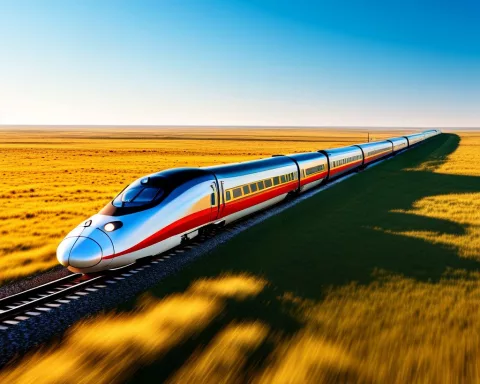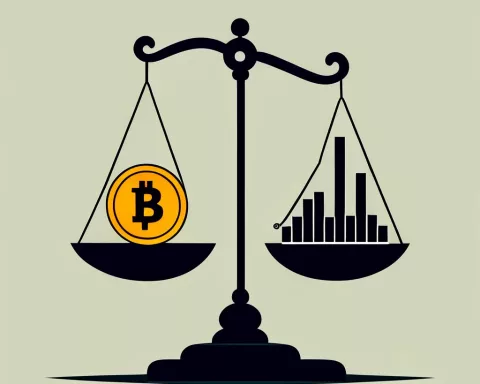Infrastructure is crucial for South Africa’s growth and change, acting like the backbone of the country. It helps create jobs, connect communities, and ensure everyone has access to resources. With big plans like the Economic Reconstruction and Recovery Plan, the government aims to boost energy, transport, and digital services, moving towards a brighter, fairer future. Projects like building bridges in rural areas show a commitment to uniting people and healing past injustices. Overall, infrastructure development is about building not just roads and bridges, but a better life for all South Africans.
What is the importance of infrastructure in South Africa’s transformation?
Infrastructure is vital for South Africa’s transformation as it drives economic growth, fosters social change, and addresses historical imbalances. Key initiatives like the Economic Reconstruction and Recovery Plan focus on sectors such as energy, transport, and digital infrastructure to support sustainable development and inclusivity.
The Role of Infrastructure in Economic Revival
Infrastructure plays a critical role in South Africa’s governance, serving as a catalyst for economic growth, social change, and addressing historical imbalances. Deputy Minister of Public Works and Infrastructure, Sihle Zikalala, has emphasized the importance of this sector as highlighted in the State of the Nation Address. Infrastructure is not just a set of physical constructs; it is integral to the nation’s developmental narrative.
The Economic Reconstruction and Recovery Plan (ERRP) was introduced by President Cyril Ramaphosa during a period marked by global health crises, economic challenges, and social unrest. Infrastructure emerged as a key driver of economic recovery, drawing parallels to the New Deal era in the United States, where public works projects spurred national rejuvenation. Infrastructure South Africa (ISA) was established as the central entity responsible for the planning, management, and implementation of these initiatives. Under the leadership of Minister Patricia de Lille and Dr. Kgosientsho Ramokgopa, ISA has unified efforts across government sectors to streamline infrastructure projects.
One significant step forward was the creation of the Infrastructure Fund (IF), which introduced blended finance models to integrate private sector investment into public projects. This approach is not merely procedural; it signifies a shift toward inclusivity and partnership. The National Infrastructure Plan 2050 echoes this sentiment, focusing on key areas such as water, energy, transport, and digital infrastructure. These sectors not only align with global trends but also aim to future-proof the nation’s economy through sustainable and technologically advanced developments.
Strategic Developments and Transformational Goals
The South African government has demonstrated its commitment to infrastructure development through the gazetting of Special Infrastructure Projects (SIPs) under the 6th Administration. These projects represent a massive investment, valued at approximately R3 trillion, underscoring an ambitious vision for the future. Energy initiatives, especially those focusing on embedded generation and green hydrogen, dominate the landscape, reflecting a global shift toward renewable and sustainable energy sources.
Financing these initiatives involves a complex yet innovative blend of public and private investments. The Infrastructure Fund, alongside its partners, orchestrates this delicate balance of capital allocation and risk management, showcasing a sophisticated understanding of modern economic needs. Beyond mere numbers and policies, these efforts represent a deeper narrative of transformation and redress. Zikalala’s insights highlight how infrastructure development can heal historical wounds left by apartheid’s spatial planning by fostering equitable access to opportunities.
Programs like the Welisizwe Rural Bridges initiative exemplify this ethos by physically connecting isolated communities and metaphorically bridging social inequalities. Completion of these bridges across provinces symbolizes more than just infrastructure progress; it reflects a commitment to inclusivity and empowerment, ensuring that all South Africans, regardless of their background, have access to essential services and opportunities.
Legal and Social Dimensions of Infrastructure
Land expropriation remains a contentious yet vital issue in South Africa, igniting passionate debates. The Expropriation Act, designed to adhere to constitutional principles, seeks to balance land reform with property rights. Zikalala provides historical and comparative insights, positioning South Africa within a global context where expropriation is a recognized governmental power for public good. Terms like “Eminent Domain” in the United States and “Compulsory Purchase” in the UK reflect a universal acknowledgment of this authority.
This legislative progression, though fraught with challenges, aims to rectify historical injustices and reshape the narrative of land ownership. The charged rhetoric surrounding the topic highlights the need for informed and nuanced discussions. Zikalala’s reflections on the responsibilities of public officials emphasize the importance of upholding constitutional mandates despite personal and political pressures, underscoring the ethical obligations inherent in governance.
In terms of social infrastructure, entities like the Independent Development Trust (IDT) and the Expanded Public Works Programme (EPWP) play a crucial role. These initiatives reflect the government’s dedication to not only constructing physical infrastructure but also fostering human capital and enhancing community resilience. The EPWP, in particular, showcases an adaptive response to fiscal constraints, ensuring employment and skill development opportunities are accessible across all demographic segments.
A Vision for a Unified Future
The comprehensive approach to infrastructure development in South Africa embodies a broader vision—one that goes beyond economic measures to foster a society grounded in equity, opportunity, and unity. This vision acknowledges the complex interplay of history, politics, and economics, aiming for a future where all South Africans can thrive. The Deputy Minister’s address, rich with historical context and policy analysis, offers insights into the transformative power of infrastructure. It challenges us to envision the built environment as a canvas for the nation’s future—a future that honors the past while embracing the possibilities of tomorrow.
FAQ
What is the significance of infrastructure for South Africa’s growth?
Infrastructure is essential for South Africa’s growth as it drives economic development, creates jobs, and connects communities. It is a foundational element that supports access to resources and services, and it plays a crucial role in addressing historical imbalances in the country.
How does the Economic Reconstruction and Recovery Plan relate to infrastructure?
The Economic Reconstruction and Recovery Plan (ERRP) introduced by President Cyril Ramaphosa emphasizes infrastructure as a key driver for economic revival, particularly during challenging times marked by global health crises and social unrest. The plan focuses on sectors like energy, transport, and digital services to foster sustainable development and inclusivity.
What initiatives are being implemented to improve infrastructure in South Africa?
The South African government has launched various initiatives, such as the Special Infrastructure Projects (SIPs) and the Infrastructure Fund (IF). These initiatives encourage public-private partnerships and investments valued at approximately R3 trillion, focusing on areas like renewable energy, transport, and digital infrastructure to promote economic growth and social equity.
How does infrastructure development address historical injustices in South Africa?
Infrastructure development aims to heal historical wounds left by apartheid’s spatial planning. Projects like the Welisizwe Rural Bridges initiative physically connect isolated communities, fostering equitable access to opportunities and essential services, which helps bridge social inequalities and empowers disadvantaged groups.
What is the role of the Independent Development Trust and the Expanded Public Works Programme?
The Independent Development Trust (IDT) and the Expanded Public Works Programme (EPWP) are crucial in promoting social infrastructure. They focus on enhancing human capital, providing employment opportunities, and ensuring that communities can build resilience. These programs reflect the government’s commitment to not only physical infrastructure but also the overall empowerment of citizens.
How does land expropriation relate to infrastructure projects in South Africa?
Land expropriation remains a significant and complex issue in South Africa, impacting infrastructure projects. The Expropriation Act seeks to balance land reform with property rights, allowing the government to acquire land for public good. This process aims to rectify historical injustices while also facilitating necessary infrastructure development to support economic growth and social equity.












